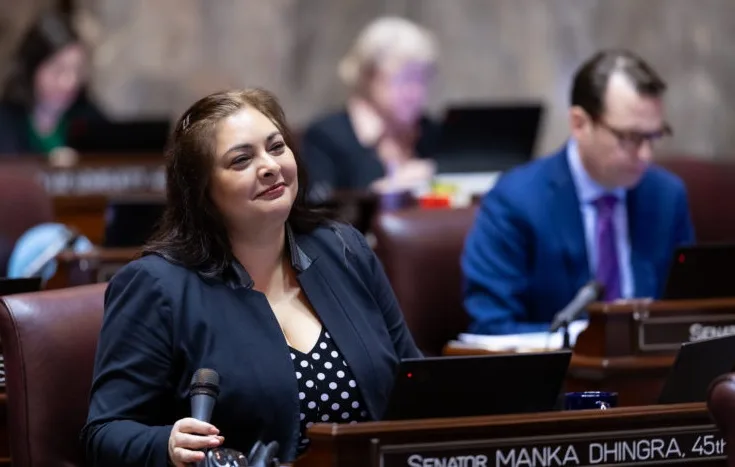
OLYMPIA, WA – Child survivors of human trafficking and sexual abuse would receive greater support and protections under legislation passed unanimously by the House Thursday.
Every year, 500 to 700 minors are forced into sex trafficking in Washington State. But over the past decade, fewer than 100 people have been prosecuted in Oregon and Washington for sex trafficking crimes.
Though the Legislature has made significant progress in recent years to increase support for survivors, Washington state received a C rating under new grading criteria used by Shared Hope International, the leading nonprofit working to eradicate sex trafficking.
SB 6006, sponsored by Sen. Manka Dhingra (D-Redmond), would implement Shared Hope’s recommendations to improve how the state identifies and responds to victims, provides victims with continued care, and enables victims to seek civil remedies for the wrongs done to them. It would also make Washington state law consistent with the federal Justice for Victims Trafficking Act so the state can continue to receive federal funding for anti-trafficking work.
“Currently, survivors of sex trafficking do not have the same rights and access to the services and support that survivors of childhood sexual assault do,” said Dhingra, chair of the Senate Law & Justice Committee. “These sexually exploited children are not criminals; they are victims. This bill further ensures we recognize that even though their abuse is paid for, they are victims and are in need of access to service and support. That is justice.”
An amendment added in the House adds the major provisions of HB 2076, sponsored by Rep. Tina Orwall (D-Des Moines). The legislation would now incorporate existing trafficking statues to make prosecution easier and to bring justice for more victims.
The legislation would modify trafficking laws to establish new definitions for coercion, kidnapping, and sexual motivation. It would direct the state auditor to conduct performance audits on fees collected for violations of trafficking crimes. It would also reestablish the Commercially Sexually Exploited Children Statewide Coordinating Committee to coordinate a statewide response to the commercial sexual exploitation of children, youth, and young adults.
“Current anti-trafficking law is failing Washington,” said Orwall. “It’s hard to use, and prosecutions are rare. By strengthening the law, we provide the legal system tools to fight trafficking and support victims.”
In 2020, the Legislature passed HB 1775 to provide “safe harbor” to survivors of child trafficking. That bill prohibits anyone under 18 from being charged with the crime of prostitution and creates a therapeutic pilot program where law enforcement can place sexually exploited youth to receive intensive wraparound services.
Having been amended in the House, SB 6006 now returns to the Senate for concurrence.

